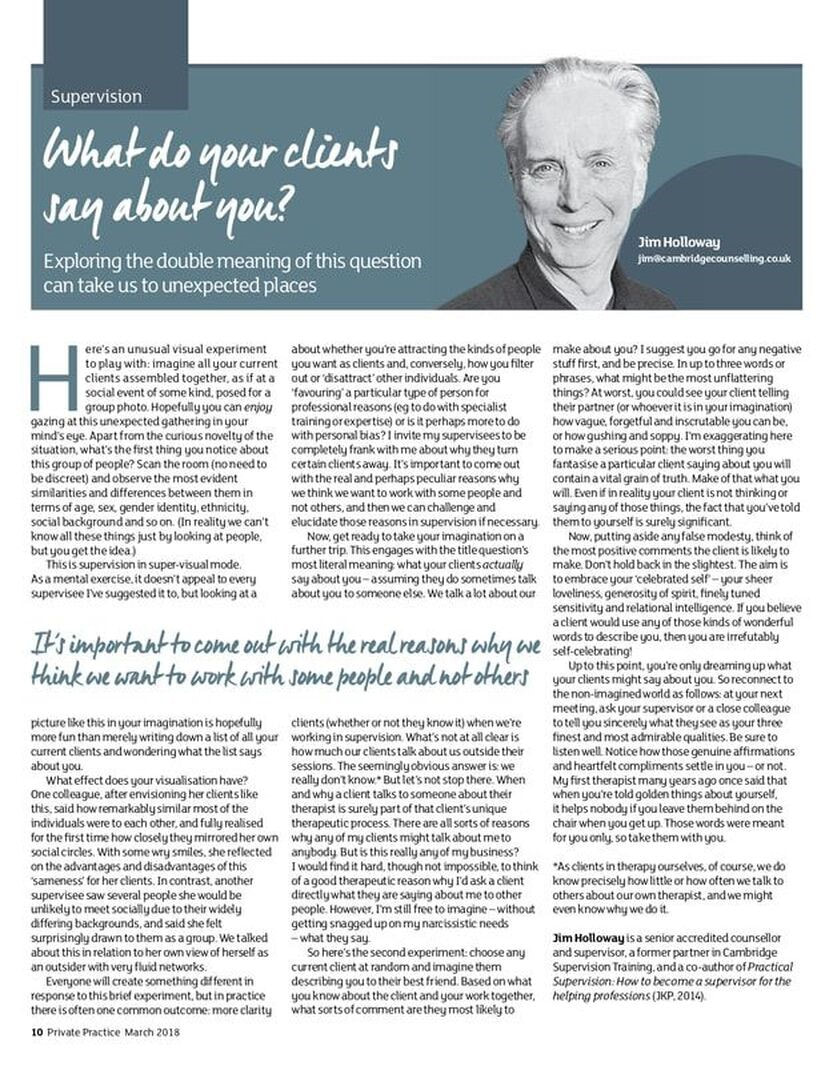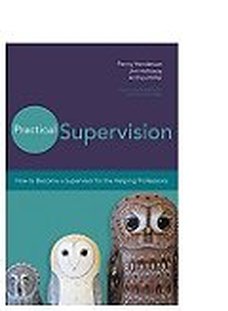Resources
Articles by Jim Holloway, Published in BACP's Private Practice journals.
Jim Holloway is a senior accredited counsellor and supervisor, a Cambridge Supervision Training Associate, and a co-author of Practical Supervision: How to become a supervisor for the helping professions (JKP 2014).
Articles by Penny Henderson






